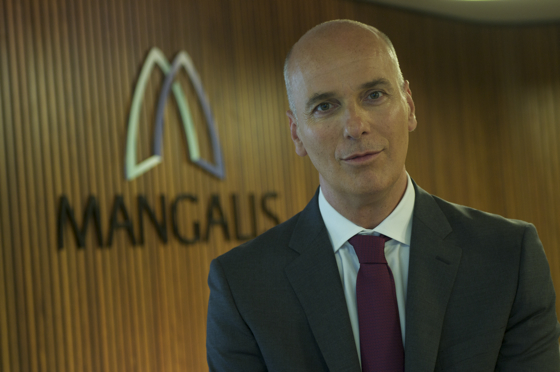
It is time to rethink what makes a player on the African hotel scene. Until recently, there were the home-grown hotel companies such as Sun International and Protea Hotels, both based in South Africa, and a few youthful hopefuls such as Azala? Hotels in French-speaking West Africa leveraging local development expertise and market knowledge. Then there were the big international powerhouses, such as Hilton, Starwood, InterContinental Hotels Group and Accor, wielding global marketing power and international brand strength on the other. Mangalis Management Group could change all that.
Funded primarily by West African investors but with a European operational base, Barcelona-based Mangalis is setting out to make a bigger impression in what is fast becoming one of the hottest destinations in the world. In the four years since the company’s inception, Mangalis has launched two brands with a third to debut soon, and plans to become one of the largest hospitality players in Africa in just a few years.
The company now has an 18-hotel pipeline in 13 African countries—and not just in the usual destinations targeted by global players, but in locales with insider appeal. HOTELS recently sat down with Mangalis’ newly appointed CEO Olivier Jacquin to talk about what it means to grow in Africa now and what it will take to be the continent’s break-out international star.
HOTELS: What does your pipeline look like?
Olivier Jacquin: Right now, we’re opening in 13 countries, all concentrated in the middle of the continent from about Senegal to Sudan and Chad to the Democratic Republic of Congo. That’s phase one of our development. In phase two, we’ll be looking further afield in Africa. In phase three (about 2017-2020), we’ll be expanding to the EMEA region, especially cities like London, Paris, Madrid and Barcelona.
HOTELS: How much of your development is funded locally versus coming from the U.S. or Europe?
Jacquin: Right now, most of our funding is coming from West African sources. The IRRs are twice what they would be in Europe, and investors are noticing. Farther down the line, we’d be seeking out European capital, especially from France and the U.K.
HOTELS: Since Africa has traditionally been very friendly to branded offerings from chains, what do you feel you have to prove as a start-up flag?
Jacquin: Since we’re mostly in the economy, midscale and upscale sectors, there’s not as much competition with brands. Only about 5% of the Africa hotel inventory is branded, as opposed to 70% in the U.S. or 30% to 40% in Europe. So, there is more space for Mangalis to establish itself as a truly African company. Also, because of that, we feel that being a one-stop shop for investors is crucial. We can be closely involved with every aspect of the hotel, including design and branding. We have a small but flexible network in these countries that includes governmental contacts. That’s vital for getting anything done in Africa, where securing licenses can be complicated.
HOTELS: What makes the DNA of a hotel uniquely Africa?
Jacquin: It starts with the design. Africa has been at the end of the queue for far too long when it comes to design and amenities. Modern African travelers require the same connectivity as anybody else. We introduced square rooms and open plan design to give the hotels a modern feel.
HOTELS: Where do you see Africa headed?
Jacquin: In the next five years, many countries will make huge strides in infrastructure. Several, such as Senegal and Kenya, will be getting new airports. Highway systems will continue to improve, which is key given that shipping materials in can add 20% to construction costs.
Contributed by Oriana Lerner, contributing editor
